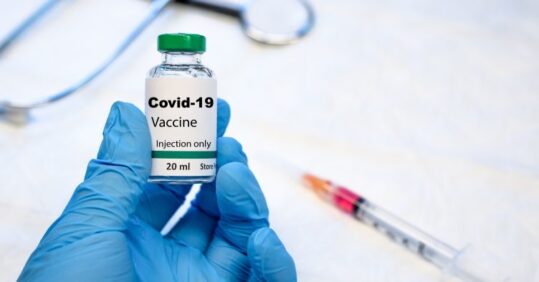Agency and temp nurses ‘left behind’ in Covid-19 vaccination programme

Almost half of agency nurses and a quarter of temporary nurses have yet to be given a Covid-19 vaccine, a survey has found, with the RCN urging the Government to intervene.
The RCN survey of 24,370 nurses, published today, found that 44% of agency staff and 27% of temporary staff have not yet received the jab, compared to 12% of permanent staff and 15% of nurses overall.
The nursing body warned that non-NHS nurses – from care homes, the private sector and some community roles – were also ‘being left behind’ in the vaccination programme, with just 71% receiving at least one vaccine compared to 91% of NHS staff.
Related Article: ‘Patients not prisoners’: Palliative care nursing behind bars
RCN chief executive Dame Donna Kinnair said: ‘Employers are ultimately responsible for ensuring all their staff are able to access the vaccine. But the Government must intervene now, as our members have proven this is clearly not the case.’
She continued: ‘Temporary and agency staff work in our communities and hospitals, with patients and the public – and they face the same level of risk as their NHS colleagues. Every effort must be made to reach all nursing staff to ensure the protection of patients and vulnerable people.’
Overall, the survey found 85% of nurses had received at least one dose of the Covid-19 vaccination and 7% have received both jabs.
Of the 3,651 (15%) respondents who had not yet received at least one vaccine, over half (55%) had not yet been offered it. This rose to 70% among those working outside the NHS.
Related Article: NHSE confirms dates and eligibility for autumn Covid and flu jabs
Around 7% of respondents (1,624) had not had the vaccine despite being offered it. Reasons included not wanting the jab right now or being undecided (38%), not wanting the vaccine at all (12%) or there not being enough doses available when they went to have it (4%).
Nurses who chose not to have or were advised against having the vaccine listed concerns including around safety, side effects, the vaccine contents, long-term effectiveness against all strains of Covid-19, a lack of information and concerns about pregnancy, fertility and breastfeeding.
Both coronavirus vaccines – the Oxford/AstraZeneca and Pfizer/BioNTech – currently being used in the UK have been found to be safe by the Medicines and Healthcare products Regulatory Agency (MHRA).
Related Article: QICN bids farewell to Dr Crystal Oldman as she retires from CEO role
There is also no evidence the jabs could impact women’s fertility. The Joint Committee on Vaccination and Immunisation (JCVI) does not recommend pregnant women get the vaccine because of ‘insufficient data’ but now advises that breastfeeding women can have the vaccine.
The Government is aiming to vaccinate all the JCVI top four priority groups – over 70s, the clinically extremely vulnerable, care home residents, and frontline health and social care workers – by next Monday.

See how our symptom tool can help you make better sense of patient presentations
Click here to search a symptom




